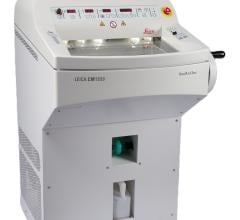
November 28, 2021 — Motilent, the first company to specialize in the assessment of digestive diseases using AI medical image analysis, announces FDA 510K clearance in the U.S. The rollout of this technology will be in partnership with Nuance AI solutions.
Launched in 2013 by King’s College London and University College London (UCL) alumnus Dr. Alex Menys, Motilent was created to support the 62 million people affected by digestive diseases in the U.S., and ultimately help get patients on the right treatment more quickly.
The post-processing software, GIQuant, already used in U.K. institutions including Great Ormond Street Hospital, works alongside standard magnetic resonance imaging (MRI) scans to measure and track movement of the intestine. This measure of intestinal movement, known as “motility,” is often affected by gastrointestinal (GI) disease activity, and thus provides insights into disease progression.
Spotting Treatment Failure in Crohn's Disease
With an initial focus on Crohn’s disease, GIQuant aids physicians in advanced image assessment: providing data led insights to monitor therapeutic response and allow for more informed clinical treatment decisions. This extra layer of objective data—collected non-invasively—can help physicians take patients off ineffective therapies faster and speeds up patient treatment journeys.
The new FDA 510k clearance [search K211356] gives Motilent the greenlight to deploy GIQuant across healthcare providers in the U.S. Supporting the move into the U.S. healthcare market, the company has also announced a new partnership with AI patient-care software provider Nuance.
Used by 90% of hospitals, 10,000 healthcare organizations worldwide, and 80% of U.S. radiologists, Nuance’s AI‑powered solutions capture 300 million patient journeys each year and apply real-time intelligence to support clinical decision-making. Collaborating with Nuance, GIQuant will equip clinicians, radiologists and care teams with new motility data and a suite of actionable insights to help monitor, understand, and ultimately improve clinical quality and patient safety.
Motilent CEO Alex Menys comments: “For me, the digestive tract has always been an enigmatic but crucial system that influences how we feel, what we think and often how we act. Across a range of diseases, symptoms like abdominal pain, constipation and nausea cause a huge amount of distress and impact on quality of life. To date, our options for analyzing the gut have been limited—hindering basic research, drug development and ultimately effective patient treatment. With FDA clearance, our first product GIQuant can be used in combination with routine MRI to easily evaluate gastrointestinal function. I'm hugely proud of the Motilent team and excited by the potential this technology has to improve the management of digestive disease.”
Peter Ellis, Chairman of Motilent says: "FDA clearance is an important step for Motilent as we move to the U.S. market. Through our partnership with Nuance, and via our own direct sales capabilities, we will have extensive market access, ensuring more U.S. patients have access to Motilent’s technology. This is an incredibly exciting milestone for us on our mission to get every patient with digestive disease on the right treatment, at the right time."
To mark their launch in the U.S., Motilent will be exhibiting for the first time at RSNA 2021, the Radiological Society of North America’s annual conference, taking place Nov. 28 – Dec. 2, 2021. The team will showcase their technologies (booth 5158) and discuss GIQuant in real world settings, including initial experiences and findings from a year's use at Frimley Park Hospital NHS Foundation Trust.
For more information: https://www.motilent.co.uk


 February 13, 2026
February 13, 2026 









